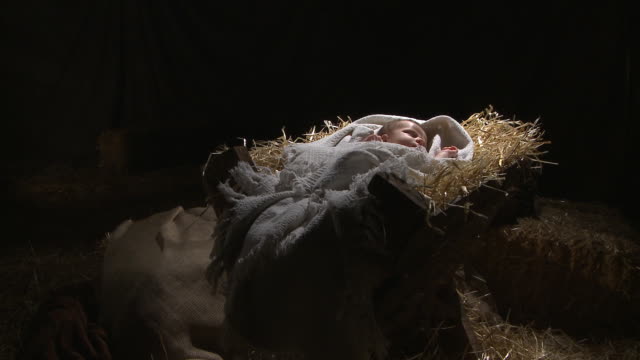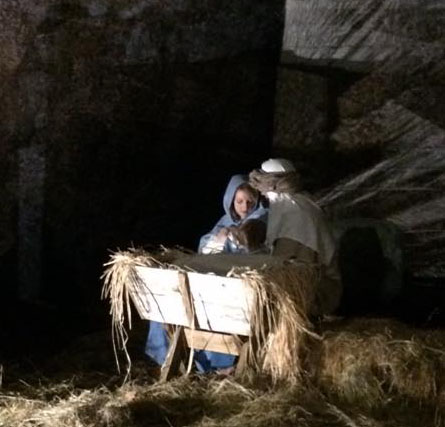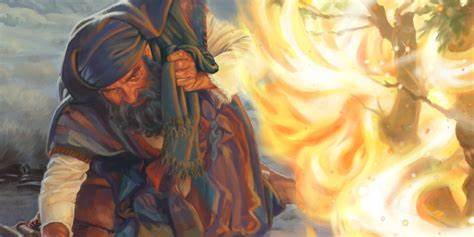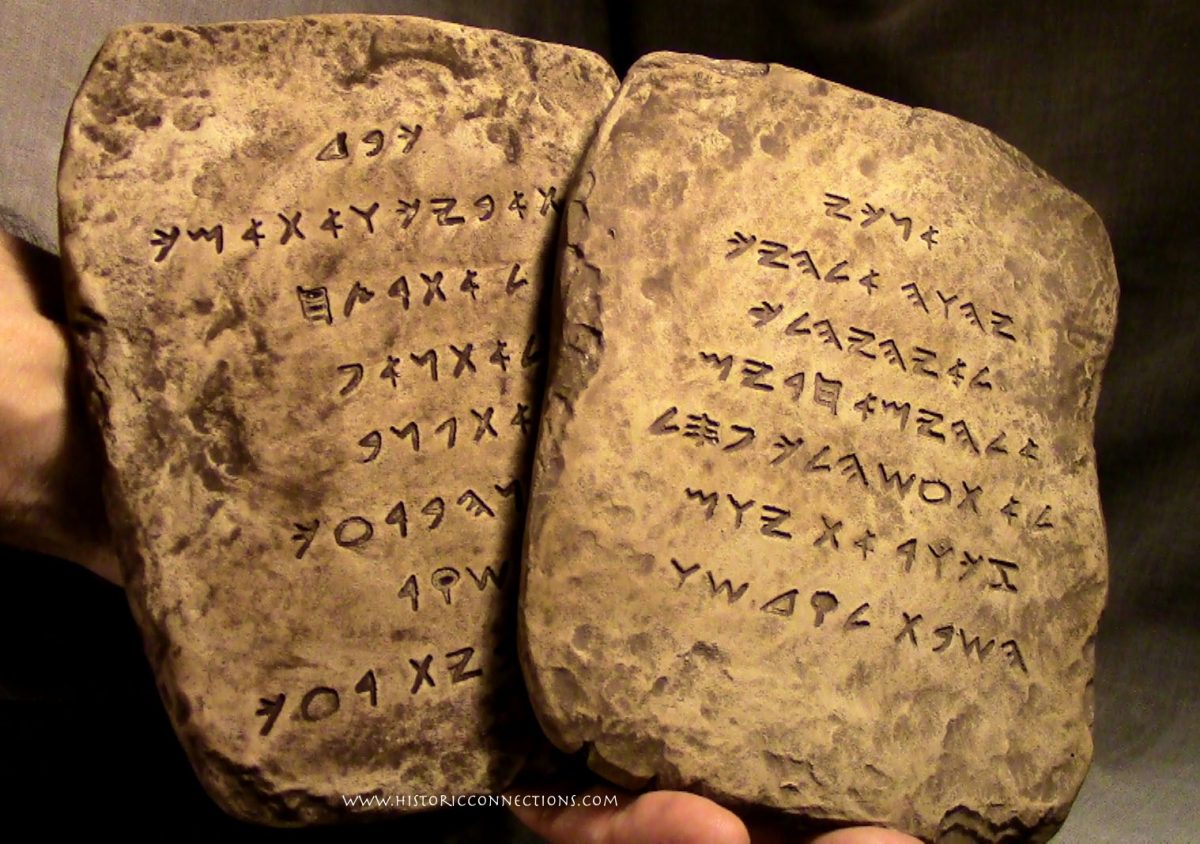Hebrews 10:22-25; I Corinthians 12: 12-26
My son Andrew has always been pretty good at pushing buttons. He had a way, particularly as a toddler, of getting under his older brother’s skin.
After one particularly troublesome morning where two-year-old Andrew repeatedly pestered four-year-old Adam, we heard a muffled scream from the playroom. Andrew came around the corner crying. He declared with righteous indignation through incredulous tears, “Adam hit me back.” It was the “hit me back” part of that statement that had Robin and I fighting back the laughter. Adam had finally had enough, and our toddler had implicated himself in his own words.
The episode didn’t cure him of being that annoying little brother at times. In the honesty of days gone by, they both were pretty good about stirring each other up, one action invariably leading to retaliation until they both were in trouble.
I guess all little brothers or little sisters have that tendency. I was a middle child. I’d like to think I was different, but I suspect my older brother would disagree.
The truth is the selfishness that is natural for a young child, tends to stay with us as adults. We’re all pretty good about pushing buttons when we’re feeling neglected, hurt or out of sorts.
The writer of Hebrews seemed to recognize that most of us are button pushers. He offered some affirming words on the subject.
The writer of Hebrews is unknown. For lack of any other name and in an effort to keep my word count low, rather than always referring to the writer of Hebrews, I’ll call him Syntakti. It means author in Greek.
Whomever Syntakti is, he is one who speaks with the authority of one who knows and understands the teachings of Jesus. The theology of his message throughout Hebrews lines up well with everything that Jesus and his disciples taught. His practical application rivals that of Paul.
One of the main theological themes of Hebrews is that Jesus is greater…the greater priest than Israel’s high priest and the greater sacrifice than any gift man might present as an atonement offering.
Shortly after making his case that Jesus is the greater priest and sacrifice, Syntaki states there is no longer a need for sacrifices offered under the law because of the price Jesus paid in blood upon the cross. Since the final sacrifice has been made and the Jesus now stands as the “great priest over the house of God” (Hebrews 10:21), the author, Syntaki, offers instruction on how to practically persevere in the faith. One of the keys, he says, is to “push somebody’s buttons” (my words, not his)
Let’s read what he says.
“Let us draw near to God with a pure heart and with the full assurance that faith brings, having our hearts sprinkled to cleanse us with a guilty conscience and our bodies washed with pure water. Let us hold unswervingly to the hope we possess, for he who promised is faithful.
“And, let us consider how we may spur one another on toward love and good deeds, not giving up meeting together as some are in the habit of doing, but encouraging one another—and all the more as you see the Day approaching. (Hebrews 10:22-25)
Did you see it in verse 25? “Spur one another on…” Another translation says we should “Stimulate one another to love…” The author tells us to figure out how we can poke, prod and push one another toward love and good deeds. To push each other’s buttons so we learn to love each other and do the good work to which we have been called.
Our present context for “pushing buttons” is a negative one, falling more in line with the annoying little brother. We push until it triggers the explosive reaction we hoped to provoke. Syntakti encourages us to push the right buttons that spur one another or stimulate one another to do the things our great priest desires us to do.
If you’re anything like me, you don’t like to be pushed or prodded to do anything…even if it’s good for me or beneficial in some way. When someone pushes my buttons…even the good buttons…I tend to push back and do nothing or worse, do the exact opposite. The author shows us how to push in the right way.
Syntakti says before we push anyone’s buttons we must “draw near to God” with a pure heart and the full assurance that faith brings. It’s an idea that speaks to our confidence and trust in the greatness and “graceness” of our Father in heaven. Because we have in Jesus direct access to the Father, because we are beneficiaries of his amazing grace, we can go directly to him with our joys, concerns, sorrows and fears in absolute confidence and trust. We have that privilege because what we find in his word and what we see in his character is true. He is the same “yesterday, today and tomorrow.” Our life experiences prove it time and time again.
Drawing near to God speaks to our personal interaction with him. While we certainly draw near to him in corporate worship, we must also find intimacy with God through our private time with him. Bible study. Prayer. Listening. Walking with him every day. Paying attention to the Spirit’s leading. Such commitment cannot be a one-time thing.
The author also tells us to “hold unswervingly to the hope we possess” in Christ. Never let go of the hope we have in Christ. Why? Because he has proven himself faithful time and time again. Keep trusting in his faithfulness. Keeping a tight grip on the promises he has kept to us. His word reminds us of his constant, undivided love.
Holding without fail to our hope presents the idea of extreme focus on the things of God to the exclusion of the ways of the world. Unwavering trust when things are going well, knowing he will never ignore us. Unwavering trust in the most difficult times of life, knowing that he will never abandon us.
So, before we can push each other to do what God wants us to do, we have to have our hearts and mind in the right place. Only then can we “consider how to spur one another toward love and good deeds.” Without that foundation of faith governing our words and actions, we will almost invariably push the wrong buttons. At the very least, it will come across as a holier-than-thou attitude.
The word “consider” used in this passage means to “think carefully about…” “To figure things out…” “To be intentional” in thinking about new ways to encourage each other to live as we should. We are to light a fire under each other and push the buttons that will trigger the love within us and move toward doing good.
Syntakti knew his audience well. In the hindsight provided by the Spirit, I think he knew us pretty well, too.
Life was not easy for those first century readers. In many ways, it is no easier for us to live for Christ in our world today. The hardships they faced tempted them to drift away from the fellowship of believers. As the world discounts so much of what we hold dear, are we not also tempted to drift away?
Since the pandemic, the exodus from the church has had staggering implications on church attendance and ministry. Like those first century Christians, it seems we find it safer and easier to worship in isolation or not at all.
The author of Hebrews knows the danger of separating ourselves from the body of believers. He wants us to spur each other to love one another and to do the good work and ministry of the church. We can’t push the right buttons if we’re isolated at home. We can only encourage one another if we meet regularly together. If we join in corporate worship. If stand by each other in ministry.
Look again at verse 25.
“And, let us consider how we may spur one another on toward love and good deeds, not giving up meeting together as some are in the habit of doing, but encouraging one another.”
Here’s what I’ve found to be true in my personal experience. My best days of worship happen when someone pushes my buttons. The congregational and choral music inspires. The preaching challenges. The teaching makes me think. Someone uses the gifts God gave them to encourage me to keep living for Christ. To spur me on to love others more deeply. To push me to keep serving him. To prod me to keep meeting the needs of others.
I need that encouragement in my life as I suspect you do. I need them to push my buttons. It’s true that one can practice faith in isolation, but others miss out on your testimony and witness. If you are not “meeting together,” you’re depriving others of the gifts you bring to the table. You’re depriving them of the blessings you have to offer. If I’m not present, I’m depriving you of the blessings I have to offer.
In I Corinthian’s 12, Paul plants his tongue in his cheek and tells us how much we need each other.
Now if the foot should say, “Because I am not a foot, I don’t belong to the body,” it would not be a reason to not belong to the body. And if the ear should say, “Because I am not an eye, I do not belong to the body,” it would not for that reason stop being a part of the body. If the whole body were an eye, where would the sense of hearing be? If the whole body were an ear, where would the sense of smell be?…Now you are the body of Christ, and each one of you is part of it. ” (I Corinthians 12:15-17, 27)
The point of that humorous illustration is that God gifts us in unique ways to be a part of the body of believers. The kingdom of God only flourishes when every part of that body is present and working together.
If you’re an ear, I need you to be a great ear. If you’re a foot, put your best foot forward. By being who God called you to be, I am encouraged to use my God-given gifts in service to God and others. I am encouraged to love and do good deeds. And, maybe, just maybe, as I do those things, I am an encouragement to you.
My boys pushed a lot of buttons in their childhood and, especially during their teenage years. Even in those times, we knew they cared for each other. They did enjoy pushing those buttons, though.
However, in the years since, they’ve pushed the right buttons for each other. The deep love and friendship they have for one another stands in remarkable juxtaposition to the arguments of youth. They have been there for each other in some incredibly difficult times over and over again, encouraging one another, much to the delight of their parents.
I am grateful for all the people God placed in my life to push all the right buttons in me. You have spurred me to love more deeply and serve more intentionally.
Let me encourage you to draw nearer to God. To hold unswervingly to the hope in Christ that you possess. Then, let’s consider together ways that we can together push each other’s buttons so we can love with the love of Christ and do the good work he has called us to do.
Seems to be a good prayer for today.
Amen!









